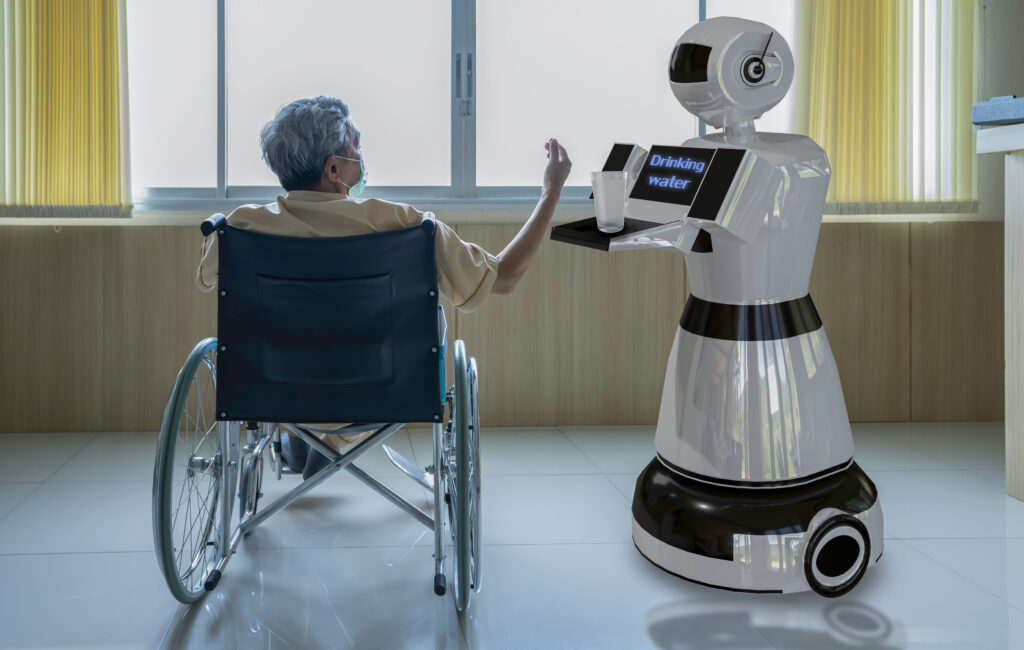How reinventing care delivery can lead to better healthcare experiences
As organizations grapple with growing staff shortages, the tactical use of technology can improve efficiency and alleviate unnecessary burdens that consume time and morale.

Clinical staffing is headed toward a crisis point, with demand rising to an all-time high. Consider this – by 2030, one in six people will be 60 to 90 years old, traditionally the highest utilizers of healthcare services. Meanwhile, the demand-supply gap is poised to widen, as more than 6 million nurses are expected to retire by 2030.
With healthcare workers leaving the industry in droves, organizations need to find innovative ways to engage and retain the workforce. Needless to say, these organizations cannot hire or train their way out of this situation. Instead, they need rethink ways of working to give workers what they truly want – a better work experience that leaves them happier, healthier and more productive.
To reimagine care delivery, organizations need to assess the worker deficit problem from a new lens by pursuing continuous, dynamic reinvention. A critical element is the need to rethink operating models because this level of reinvention and transformation doesn’t easily align with how health systems are traditionally organized. This effort requires strong C-suite sponsorship and an operating leader with the capabilities to change the nature of the job and balance human and technology resources to jointly do the work.
Technology is a key aspect in this long-term journey to reinvention and can help organizations drive real change. When applied to enhance performance and empower people, new technologies – from the metaverse and augmented reality to artificial intelligence and machine learning – have the power to combat staffing shortages and allow clinicians to do what they do best.
Take the example of Moxi, a robot designed for hospitals. It was able to save healthcare workers at one hospital 3,200 hours by taking care of routine tasks like deliveries, thus enabling staff to spend more time giving care to patients.
Another key example is generative AI. Nearly all (98 percent) healthcare provider executives agree advancements in the technology-backing applications like ChatGPT are ushering in a new era of enterprise intelligence. The immediate opportunity for generative AI in healthcare is its ability to automate many of the manual and time-consuming tasks that clinicians must complete every day, such as documentation, while also improving patient education with its ability to quickly simplify complex medical language into summaries that are easily understood by all people.
People and technology at the heart of reinvention
Healthcare organizations that embrace a path to reinvent care delivery will empower their workforce to do their jobs better, freeing clinicians to do what they do best. Key actions health leaders can take to reinvent care delivery include:
Transform work experiences from the top. A happy workforce has a positive impact on the bottom line. Healthcare executives who adapt to their employees’ needs will be better able to develop a resilient, sustainable agile management culture. They must pay attention to human well-being across six dimensions, including purposeful, relational, emotional and mental, and physical. Those that don’t will risk losing their workers with important skills to other sectors. Accenture’s “Net Better Off” framework quantifies these dimensions.
Rethink teams and work models to increase capacity. When it comes to work models and standardization, organizations should focus on outcomes instead of processes. The first step to reinvention is breaking down jobs into individual tasks and asking whether each task is best performed by technology or people.
Once the nature of the work has changed with individual tasks reallocated – some to technology – the human workforce becomes comprised of fixed workers who perform the same tasks every day and adaptive workers with specialized skills that meet the need for specific services. For example, relooking at task distributions would enable doctors and nurses to handle tasks they are experts at and have trained for.
Meanwhile, other colleagues, machines or even home caregivers can take on tasks that don’t require that level of expertise. An organization’s nursing workforce could be expanded with the help of remote nurses or technology that can alleviate the burden on clinicians. In fact, Accenture estimates that automation technology in nursing can free up 20 percent of repetitive, lower complexity tasks and unlock approximately $50 billion in potential annual value. This can increase the teams’ capacity, drive efficiency and improve job satisfaction.
Blend technology and human ingenuity. There’s no doubt that technology can aid people in caring for patients and delivering better outcomes. A human-plus-technology model that leverages new technology like the metaverse, artificial intelligence, machine learning and augmented reality can help clinicians connect with patients more easily. What’s more, with analytics, healthcare organizations can forecast supply and demand in terms of staffing and other needs. This can make the hiring process more efficient, enabling health systems to recognize a gap in capacity. Organizations can use these insights to allocate resources where and when they are needed most. The ultimate goal must be to harmonize humans and technology and enable clinicians to spend more time on higher level tasks, which will ultimately increase capacity, and save time and money.
Ensuring better work experiences for healthcare workers will prevent burnout and help alleviate the clinician shortage. Organizations must evaluate the systems they have in place and the protocols they follow to reinvent how care is delivered. Those that drive a complete reinvention of care delivery will transform their organizations and the future of the industry, ensuring better access to quality care, improved experiences for patients and clinicians, and healthier outcomes for all.
Rich Birhanzel and Kaveh Safavi are senior managing directors for healthcare at Accenture.